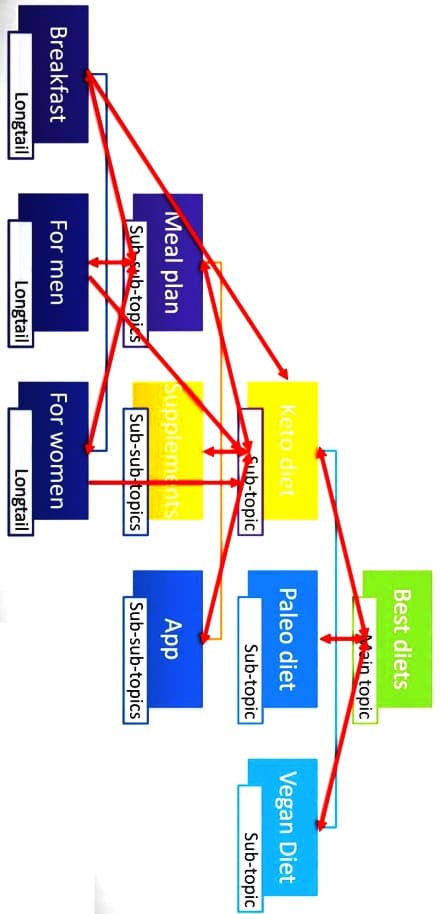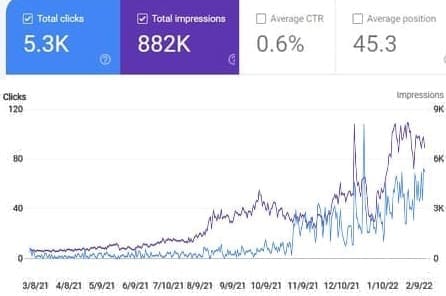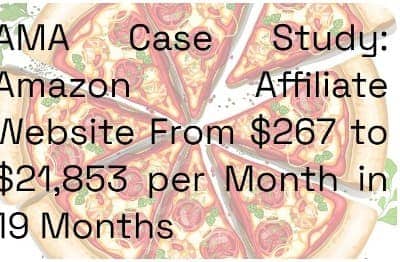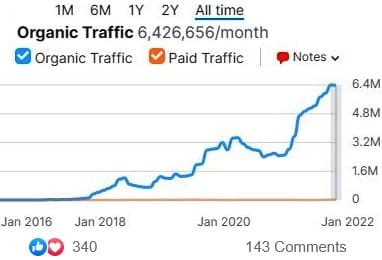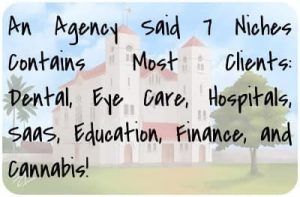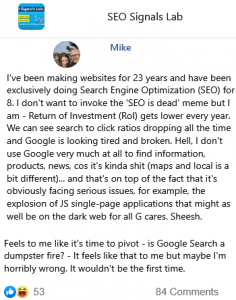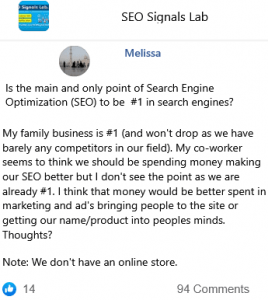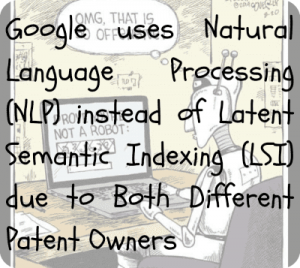Discussion 2: 13 Lessons From Selling 100+ DFY (Done-For-You) Niche Sites
Lessons Learned From Building And Selling 100+ DFY Niche Sites I posted this one elsewhere a while back and then did a presentation on it for the SEO Mastery Summit. It got a pretty positive response, so I thought I should share it on here as well.
I originally wanted to keep this short and simple, but ended up having 13 points on the list, so that didn't happen.
Anyway, here's a bit of a backstory.
I started doing client work about 5 – 6 years ago, after having done mostly affiliate marketing and Search Engine Optimization (SEO) for myself before that.
Affiliate marketing can be very rewarding, but it was missing one crucial element for me, which was that feeling of having done a good job – not much human interaction when most of what you do is based around keeping your niches secret.
So long story short, after growing and flipping a handful of my own and having worked on several different ventures that focused around niche sites, I now co-own WebAssetBuilders – a content agency that focuses on SEO-oriented content creation (3M+ words a month worth), and, you guessed it, niche sites! Of course, I also still own and build/flip my own niche sites.
Over the past 4 years, I've built and sold about 100 DFY (Done-For-You) niche websites (well, I counted 95 but am probably missing a couple), several ecommerce/small business websites, and a dozen or so niche sites for our own portfolio. Some of these we didn't grow much and sold fairly early on, others we're still growing and have hundreds of thousands of words worth of content on them.
Needless to say, I've learned a thing or two building out this many websites and creating large amounts of content for both my own projects and for clients, and I've managed to get a fairly good feeling for what a website needs in order to grow in a niche.
I've also seen what clients who bought DFY niche sites did with them, especially the ones who made their sites grow and earn effectively.
Here they are, in no particular order of importance, as I find any of them to be as relevant as the next one:
1. Know what you're going to be doing before you go "outsourcing it"
This is a big one for me, as I've been that guy and I've also worked with people who were people who were.
Now, there is nothing wrong with outsourcing things. But, there is a BIG difference between people who know what they're doing outsourcing their work, and people who expect others to make them rich while they outsource their work to them.
Because, in order to effectively outsource, you first need to know what it is you're doing, and how much it would end up costing you (both money and time-wise) if you did it yourself.
Are you going to be buying random backlink packages without ever having tried to build links yourself?
Have you gone through the backlink profiles of any of your competitors and tried to understand what it would take to get those links?
Are you relying on someone else to find you the "lowest competition keywords" without actually understanding what it means for a keyword to be low competition?
When you don't know what you're getting and blindly trust someone to do it, chances are, you're just making the service provider richer and not yourself – as they make money regardless of whether you do.
2. Stay away from crappy link building services
Nothing against service providers, as I'm one of them myself, but backlink providers are notorious for using automated tools and spun content to create low-quality backlinks.
If you do get these, all you need to do for any apparent gains in rankings to drop is wait for Google to pick up on your link building strategy. This can be with the next update, or as soon as they're done picking up all those automated links you just bought. A $5 (or any amount for that matter) Fiverr gig isn't going to cut it long-term, and in my opinion, can only be semi-useful when trying to get other properties like Web 2.0s indexed, if even then.
You need to understand what you're doing, and find the most cost-efficient provider to do it. Better yet, develop a strategy that works for you by actually doing it yourself – this can be outreach, for example – and THEN create an expert system where you can teach Virtual Assistants (VA)s to do the work for you.
It's easy to fall for marketing tricks and end up spending thousands on re-sold or automated links with little to no results to show for it.
3. Keywords matter, niches matter more
Many years ago, when I was starting with the Amazon Associates program, I went niche hunting and came across the brilliant idea to build a niche site focused on oregano oil, of all things.
I built the site, and the main keyword I was targeting was "buy oregano oil".
This was a terrible idea for several reasons:
• This was a cheap product to promote, and the commission would be pennies. Commission matters in this business – getting six $16 sales on Amazon will be harder than getting one $96 one, and commission will be the exact same amount. Likewise, making $50 per sale on a $500 product non-Amazon that converts well, as opposed to making $22.5 with Amazon, will make your website worth twice more.
• The main keyword I was targeting was FULL of large ecommerce websites on the first pages of the Search Engine Result Pages (SERPs). We're talking the likes of Walmart, iHerb, Costco. I was NOT going to outrank any of these anytime soon.
• I had a "main keyword" and didn't instead focus on becoming an authority in the niche. There's no such thing as one magical keyword that will make your website worth gazillions – this could be an entire post of its own.
• I niched down way too much. At least should went with oregano as a broader topic (no, I shouldn't have)
A couple months and a couple thousand dollars worth of overpriced content and backlinks later, I finally realized this site wasn't getting anywhere and it was time to pull the plug.
This isn't even my most embarrassing failed attempt at making it with Amazon, but because of experiences such as these, a lot of what I do now is based on deeply investigating and learning about a niche before I go and start a website in it. This includes finding offers to promote, as well as niche sites that were doing well and got sold for at least mid-five figures. I can guarantee you no niche site focusing on oregano oil ever got sold for that much.
Because here's the truth: some niches will NOT have a good Return of Investment (RoI) for the small guy starting a website in them. Yes, Etsy can make a new category page and start getting organic traffic right away, but your starter niche site is far from having the authority theirs has.
4. Learn to satisfy search intent
Look at the Search Engine Result Pages (SERPs) and see what results show up for your keyword.
What's the search intent behind the keyword?
Are you targeting a keyword for which only videos are ranking on page one?
Or one where 7 out of the top 10 results are Pinterest pages?
Are all the search results for product pages of ecommerce stores (what I like to call ecommerce keywords)?Perhaps a brand term for which all that shows up is… that brand's web properties?
Why do you think that is? Can you satisfy the search intent of the user better than the pages currently ranking on Google for it?
A simple trick to test for this is seeing whether the pages that are ranking have actual written content on them. If they don't, that means the search intent for that keyword likely can't be satisfied with a 2500-word, 4000-word, or even a 6000-word article. An exception here would be obsolete keywords or new trends, as well as low volume underserved keywords for which there isn't much content out there.
5. Start with the low-hanging fruit
We get one specific type of client myself quite often. Someone who orders 50k words of content for their chosen keywords, only to never rank for anything because everyone and their grandma are targeting "best single serve coffee maker", oftentimes because a keyword tool told them this was a "low competition keyword".
Don't be this guy. Target keywords that a site with your domain authority/rank/trust/power/PageRank/whatever-else-you-wanna-call-it can actually start to rank for.
Keywords with low allintitle results, a.k.a. "The Keyword Golden Ratio" can be great for this, as they're oftentimes underserved and easy to rank in the first few pages when starting. That is, unless you're just using one variation and Google is actually showing another for the keyword (usually when using a "stop word").This brings us to the next point:
6. Steal keywords from other small/newer sites
Who are you trying to compete with? Sorry to break it to you, but unless your website is well-established already, it will be a long time until you can compete with NYTimes's The Wirecutter.
Big sites will rank for A LOT more keywords per page than smaller ones, but the opportunity here lies in the smaller ones being able to satisfy the search demand for smaller volume keywords better.
Yes, GoodHousekeeping, The NY Times, CNET, and other giant sites will rank for "best espresso machine", but start targeting "best super automatic espresso machine under 1000" and the Search Engine Result Pages (SERPs) will look a lot different.
That's because while the former will get a much larger portion of the traffic, they will rarely bother targeting the leftovers the smaller sites are trying to scrap for. This is good news for those starting off, because it means that you can actually start getting a piece.
7. It's easier to increase conversion than traffic
Let's face it – design only matters once you actually have traffic, as you could have the prettiest website in the world with no one on it. It's easy to get caught up in details and mess around with Cascading Style Sheets (CSS) all day, and forget what you're actually trying to achieve – get sales.
With that being said, building a good, clean template is a one-time thing. This one-time task can end up converting your visitors to buyers 5x better. I learned this the hard way. If your conversion with Amazon is not at least 5%, you either:
• Messed up affiliate links
• Are using trash content
• Are using a horrendous template that doesn't convert.
• Are somehow trying to sell products that don't actually sell
Or, a combination of some or all of the above.
With that said, quality content is just as important as the template you're using. Yes, you can rank bad content too, but do you think it will convert as well?
8. Consider NOT using Elementor (and other page builders)
Being a web developer, this is just a personal preference, but every time we have a content client who uses Elementor on their website I go hide in a corner and cry a little.
The unnecessary JS, CSS and div wrappers bloat, on top of one or two Elementor plugins, in my experience, is only worth it if it somehow ends up saving you a significant amount of time.
A clean HTML and CSS content template, with a combination of Gutenberg (not that I actually like that one also, but it's there to stay), is easier to work with and will actually save you or your Virtual Assistants (VA)s a lot of time when posting content, in the long term.
9. Proper interlinking is more important than most SEO users think
This is something I've noticed with my own sites a lot. Proper, relevant internal links, seem to matter a lot more than they probably should. Don't be afraid to have an article link to every other relevant piece of content you have on your website. I personally do 5 to 8 internal links per article.
10. Pay attention to trends
Look for new products, inventions, and everything that gets attention in your niche. Your competition will often take a while to pick up on these, as keyword research tools will generally show keywords only after they've been around for several months, and they will severely underestimate the traffic value of these keywords.
Are you reviewing a lot of the models of a certain brand and they just came up with a new line? Put some reviews up and get that traffic while it's hot.
11. Always outdo your competition's content
Want one proven way to satisfy both Google and your users? Actually try to do better than your competitors (a.k.a. The Skyscraper Technique, not necessarily with the outreach part of it), and get their questions answered in a better-researched and clearer manner.
12. Have a backup plan
You've the old "don't put all your eggs in one basket" saying thousands of times already.
Well, don't. Amazon doesn't care about your commission, and they can lower it any time. Count on having to switch to a different program when they do.
One thing you can do to rely less on Jeff's good will, is to only target keywords related to products that will be available to buy on places outside of Amazon.
13. Start with the goal of leaving; think long term first, and disregard "passive income" dreams
Well, here I am, just another guy on the Internet telling you how thinking long-term is great!
With affiliate marketing, though, it can literally mean the difference between doing well and doing horrible.
It's easy to cut corners with bad content and spammy backlinks. This will not benefit you in the long run and will likely end up costing more. The short-term gains you make will just make you cry harder when it comes crumbling down and it's all Google's fault because of that last update they did.
Consider that if you were a buyer interested in your website, would you be comfortable with its history? If the answer is no, you better work on that. Not only will selling a questionable website hurt your multiple, it could actually legitimately hurt the buyer, and with that your reputation.
Also, If you're looking for "passive income" while you don't have much experience with building systems that can actually run themselves efficiently, you probably should not start. I've been doing this for a very long time, and I'm still not at the point where I can drop things and stop getting bothered with a website entirely, leaving it all to my staff.
Even if you can build such systems, life happens, and issues will need to be dealt with sooner or later. If you can't be bothered making your own projects work and just want passive income, you should probably just hodl crypto or something instead of getting into Search Engine Optimization (SEO), which is an evolving industry.
Consistency is key, and that's the one main thing that I can certainly say that all of my clients who did well had in common. They got bothered with it, they learned about it, they tried to improve on and do more of what was working for them, and they always thought long-term.
Sadly, that's only about 20% of new clients, as most of our clients who buy niche sites get enthusiastic at first and start neglecting their sites a few weeks later. Many of our returning content clients keep killing it, though, and consistency is the main reason why they're doing great while others aren't.
That's all folks, if you managed to make it this far, I do appreciate your attention!
AMA Case Study: Amazon Affiliate Website From $267 to $21,853 per Month in 19 Months
A Two-Year-Old Amazon Affiliate Site: Traffic and Total Income Tables
Discussion 1: 39 Website Sold: Buy Grow Sell Strategy
My Insights from 39 Website Exits: Metrics, Strategies, and Tips I've been going through the raw data of all my website exits. In this writeup, I will be sharing my insights on successfully selling 39 content website assets from January < year > to date. I use these insights to ensure I always have an exit strategy when I start due diligence on buying a website (regardless of size).
I've been buying, growing, and selling sites since 2008. On Flippa, I've done 135 transactions on both the buy and sell-side. Privately, I've done 76 transactions via Escrow, Paypal, or other third-party brokerages.
This report is a conglomeration of my findings of selling website assets, either my own that I've grown and sold, quick flips, or as a broker.
I cover the following:
• High-level insights, Types of deal structures I have done as both a seller and a broker,
• Common reasons why sellers sell,
• Actionable tips to position your site for sale.
💰 Sale Insights from 39 Transactions
Here are the highlights of the closed deals. These are all averages:
• Final Sale Multiple: 25 times (i.e., 25X)
• Listing to Close Time: 7.12 days
• Listing to Offer Acceptance Time: 2.58 days
• Ahrefs Domain Rating: 9
• Ahrefs URL Rating: 9.8
• Referring Domains: 132
• Backlinks: 3,025
• Final Sale Price to List Price Ratio: 0.910 (expect a 9% reduction after listing due to buyer negotiations and/or adjustments)
I did not run any detailed data analytics since my sample size is too small. However, we can still draw high-level insights from the data.
My thoughts are valid for the sub-$50K range of content sites. Anything higher I do not get involved in usually and is left for brokerages like Empire Flippers, Investors.club, FE International, etc.
Most common monetization sources?
Answer: Amazon Associates
Of all the deals that I have come across, more than 80% are Amazon Associates. Of the 39 deals, I've closed, 30 of them were Amazon Associates as a primary source of revenue.
Why is this? It's historically been easy to monetize with Amazon. Slap on a few Amazon links and send traffic. They are the king of conversion rates so you are bound to make money.
This may not be the case post-April < year > commission cuts though. We will see as the market evolves.
Highest multiples by monetization source?
Answer: not Amazon Associates
Amazon Associate focused sites had an average sale multiple of 24x. Whereas, Display Ad sites and other private affiliate focused sites had larger multiples upwards of 30x.
Niches that sell quick?
Answer: Kitchen, Home, Sports, Technology, Automotive, Pet
Most consumer goods focused niches sell quick. Most of these niches are also monetized via Amazon Associates, to begin with.
Going forward with the major Amazon changes, we may potentially see a shift where other non-traditional niches take the helm.
9% Price Reduction
Buyers, unless it's a very clear winner, will always want to negotiate down.
On average, from the initial listing price, around 9% of the sale price was reduced through either buyer negotiations or adjustments since it may have been overpriced, to begin with.
As an interesting outlier on a recent auto niche site (see here), the right buyer came along and purchased at the asking price and the offer was accepted within 15-minutes of the listing going live. That was a record!
👀 Insights into My Exit Strategies
There are four exit strategies for deals I've been involved with:
• Buy, Grow, and Flip (BGF)
• Buy, Grow, and Partner (BGP)
• Buy and Flip (BF)
• Broker (BR)
Each of these has different characteristics and benefits. But first, let's draw analogies to the real estate industry which most people are familiar with.
Analogies to the Real Estate Industry
I do own a small portfolio of single and multi-family properties that I've acquired through retail channels (e.g., Multiple Listing Service (MLS)) and wholesale. I also participate in apartment syndications as a passive investor. The website investing world is in its infancy compared to real estate. However, many similarities can be drawn from it.
These are the common transactions in real estate we can draw analogies from:
• Wholesale to Wholesale: wholesalers buy properties pennies on the dollar, then sell to another wholesaler for pennies on the dollar and make a small risk-free spread
• Wholesale to Retail Flippers: wholesalers can sell to "fixer-upper" investors who fix-up and sell to retail consumers through the MLS
• Wholesale to Direct Retail: wholesalers buy undervalued assets, fix-up themselves, and then sell to retail customers through the MLS
• Wholesale to Rental: wholesalers buy, fix-up, and then rent out long-term. This is value-investing.
There may be variations of these transactions but for purposes of comparing to website investing, these are sufficient.
Let's compare!
✔️ Buy, Grow, and Flip Strategy (a.k.a. BGF)
• Analogy: Wholesale to Retail
• Pros: buy low and sell high through value-add, high-upside, the horizon is 12-24 months
• Cons: low-value assets can be risky and volatile
This is by far my favorite but also the one I do the least amount of deals on.
Why? Well, these are deals where I am tying up my own funds for a long period of time. I only tie up my funds if and only if I truly believe in the website.
This means it has to be an authority site (or expired domain) with excellent backlinks, the potential for multiple monetization opportunities, multiple traffic sources, unpenalized, among a plethora of other factors.
I also only get involved in these deals if I see immediate Quick Wins. If I am not able to 10X revenue within 3-6 months, I do not buy that site to hold long-term.
All of my active case studies utilize the BGF principle.
✔️ Buy, Grow, and Partner Strategy (a.k.a. BGP)
• Analogy: Wholesale to Rental
• Pros: buy low and sell high through value-add, high-upside, continued upside long-term
• Cons: still holding equity in the asset after liquidating to partner
This is a continuation of the BGF strategy above. Once a site has been stabilized, I either flip (i.e., BGF) or I find a partner.
The BGP structure for me is done if and only if I know there is still more growth potential, but I would like to cash out as a majority shareholder to diversify.
In BGP, I usually retain around 15-30% of the deal as seller-financing. The investor purchases the remaining equity.
It's on the investor if they would like for me to continue managing the asset (for a fixed monthly fee), do it themselves, or hire another operator.
Note: I've done this with one of my case study sites in the dating/relationship which you can read about here.
✔️ Buy and Flip Strategy (a.k.a. BF)
Cash is King. In the website investing world, this is even more true.
In real estate, even if you have cash, transactions can take 30+ days for closing.
For web assets, I can source a deal and find a buyer all within 24-48 hours of each other. Then as stated in the highlights, it can take 7 days to fully close.
There are two main reasons for cash being important:
• Quick close: Sometimes as quick as 24-hours to transfer assets, earnings screenshots, Google Analytics, website transfer, etc.
• Negotiating power: Having cash on hand gives me negotiating power where I can push the seller to reduce multiple with the promise of quick funding and no inspection period.
✔️ Broker (a.k.a. BR)
As a broker, I am representing the seller and finding a buyer. I receive a commission for a successful transaction.
Most of my deal-flow is brokered. I vet at least 25-30 deals a week and maybe (just maybe if lucky) one of them I represent to buyers.
Why only one? Most websites do not pass my critical due diligence. They either use Private Blog Networks (PBN)s, have bad content that cannot be fixed, recently penalized algorithmically or manually, or are not in an easily monetized niche.
My quality control standards are strict as they should be.
💡 Why People Sell Sites and Strategies I Use To Close
"Why do people sell income-producing sites?" This is a question that goes around in the industry. Empire Flippers did a podcast on this topic in November < year >.
While vetting deals I get to chat with many website creators. Some are just getting started and are looking to sell their first site. Others are experienced operators with portfolios. It's all across the board.
Below I discuss the top reasons people sell sites and then partner that with the best/worst strategy deal structures (from above) that I deploy.
Creativity is key in this ever-growing industry.
Tip: For every website I buy (for a flip, short term, long-term hold), I have a preconceived best- and worst-case exit strategy. I use the mindset of an investor, not a creator/hobbyist/enthusiast.
✔️ Seller needs funds…
• Best Strategy: Buy and Flip (BF), Buy Grow Flip (BGF)
• Worst Strategy: Broker (BR)
This is the most common reason. The goal of the buyer/broker is to understand the deeper reasoning though. Essentially, are they hiding something through an excuse or it's legit.
I've bought (and brokered) sites where the seller truly had an emergency (e.g., lost their job, family medical emergencies, etc). Of course, I am not physically verifying this but it's easy to tell who is honest and upfront, versus those that just want to rush through things.
These deals can be had for low multiples, and then either a BF or BGF strategy can take place. Brokering is out of the question here. The seller values a quick close with the least amount of headaches.
✔️ Website is growing fast…
• Best Strategy: All
• Worst Strategy: Buy and Flip
Out of all the deals I've sold the ones that received the highest multiple and quickest liquidity were the ones on a high-growth curve.
The sellers also know this and are happy to wait for the right offer at the highest multiple possible.
The buyers are also excited to buy since they pay based on the last 6-month (L6M) value which averages out the revenue over lower-earning months in the past. Thus there is an immediate upside if the growth continues or even flattens at current revenues.
Example:
Here is a site I personally did the Buy, Grow, and Flip (BGF) strategy in < year >. Here was the revenue curve for this site when I sold:
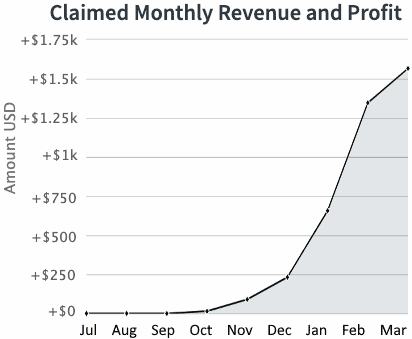
This site was earning $1,566 in March < year >. However, the Last 6-Month (L6M) average revenue was $651. The typical multiple for a content site like this in < year > was around 30x (i.e., 30 times monthly average revenue).
At 30x, I should have received no more than $19,530.
However, due to the growth trajectory in earnings, traffic, and the quality of the site, the site sold for $25,500 on Flippa. That's a 39X multiple on L6M and a 16X multiple on last month's earnings.
This is also due to the auction-nature of Flippa which drives up the price.
✔️ Seller is not "interested" in the niche…
• Best Strategy: All
• Worst Strategy: N/A
When a seller tells me this, I look deeper. The sellers in this situation also say the site has huge potential (every seller says that).
Most people lose interest in a site because (1) it's tough to write or get content outsourced, (2) there is something wrong with the site, (3) they have other businesses to manage, or (4) they were a "hobbyist" writer and truly lost interest.
In this situation, all acquisition strategies work. These deals take more due diligence to find out the real issues, and if lucky, it really is a legit site.
Depending on the seller, they may sell for lower than a market multiple to just get rid of it and move on.
This type of deal has many opportunities.
✔️ Potential has been maximized…
• Best Strategy: maybe Brokering (BR)
• Worst Strategy: Buy and Flip (BF)
Once in a while (rarely) I find sites that have truly been maximized in terms of Quick Wins. There just aren't any easy levers to pull to increase income.
I actually stay away from these in terms of buying for myself or even brokering.
Why? If the Quick Wins are maximized, there isn't an immediate upside available. Without upside, the Return of Investment (RoI) is typically 30-35 months which in my opinion is too long. I prefer the buyers that I sell too to have a clear strategy for growth with the quickest ROI.
However, these deals may still be ideal for you. Fill out this Google Form if such deals interest you.
🔥 Insights to Position Your Site For Sale
There are several ways to position your site for sale for maximum value. There are the obvious tips for positioning your site, but these are my insights I've found to provide the maximum ROI for your time.
✔️ Leave upside for the new buyer
If you have plans to sell in the next 6 months, don't tap into ALL potential sources for growth. Instead, document the strategy for the new owner.
A new owner will love to see, for example, that you did not optimize the top 10 pages for conversion rates, or that you did not target a handful of lucrative keywords, or that you did not add display advertisements on your site.
These are all Quick Wins for a new buyer.
Leave upside if you want a quick sale!
✔️ Make your site presentable
All too many times, I see sites that just have horrible theme design, a bad logo (or no logo), bad site structure, or bad content formatting.
A seasoned website investor will see these as Quick Wins. However, another subgroup may see these as headaches.
The Return of Investment (RoI) on your time as a seller to fix these up pre-6 months of a sale is worth it.
✔️ Analytics is key
Make sure you are tracking your traffic and revenue properly.
Ensure your Google Analytics tracking ID is set up correctly. Ensure you are using unique affiliate ID tags per site.
These are easy fixes that will ensure quick due diligence by the buyer. It also ensures trust in your deal from the buyer's perspective.
✔️ How much do you really need?
Sale multiple is a vanity metric.
When exiting, think about how much do you need financially. Listing a site at a peak multiple for the highest sale price will require you to wait for the right buyer.
No one wants to buy anything at market value (period).
If the amount of money you need to be satisfied means a lower multiple, then go for it. You will get a quick sale and it's a win-win for everyone involved.
Don't chase the multiple!
Takeaways
When purchasing make sure to plan for one of the following:
• Buy, Grow, and Flip
• Buy and Flip
• Buy, Grow, and Partner
If you have the network, then you can Broker
What about Buy Grow and Keep? Of course, you could buy websites, grow them, and keep in your portfolio. Nothing wrong with that! However, you need to always be positioned for a sale. You never know what will happen either personally or in the market. Ensuring your site is always in a position for a Flip or Partnership means you are set up for success.
102 Best SEO Tips to Help You Drive Traffic This Year: Do Keyword Research, Hire Writers
Website Price to Sell based on the Monthly Revenue or Profit
A Case Study of a Commentator Inherited a Dumpster Fire of a Website and Made It Work
